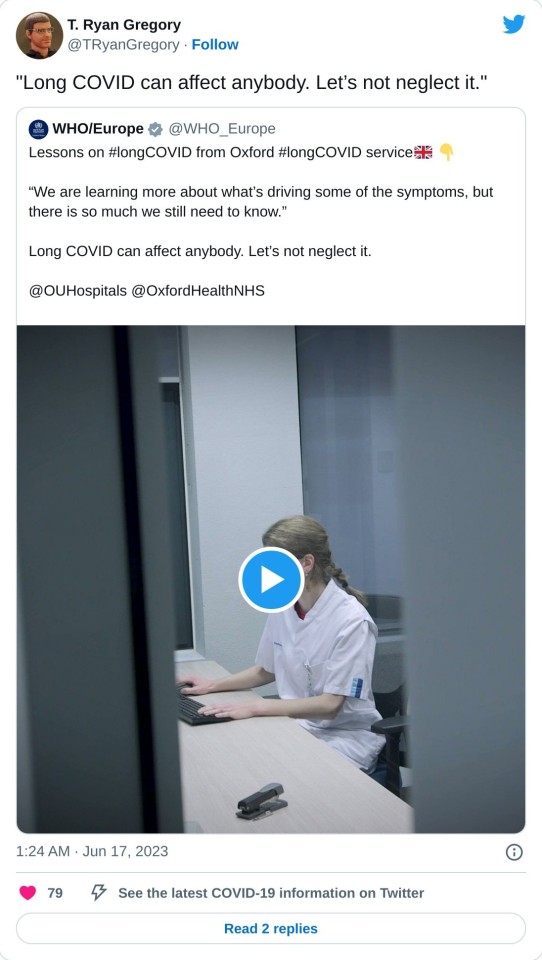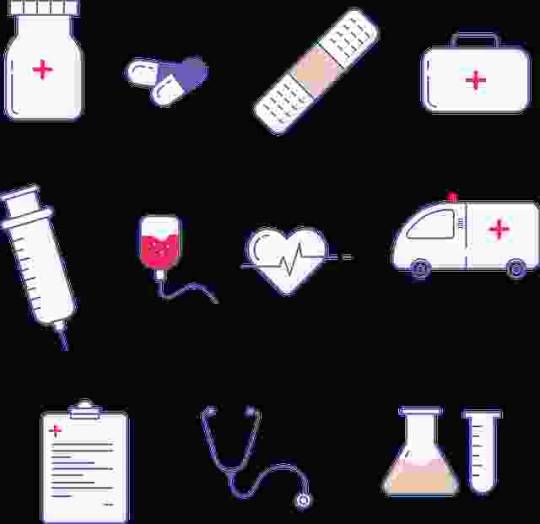#cardiovascular risks
Text
What Happens if Your B12 Deficiency Is Left Untreated?
What Happens if Your B12 Deficiency Is Left Untreated?
Introduction:
Vitamin B12, an essential nutrient for nerve function, red blood cell production, and DNA synthesis, plays a critical role in maintaining overall health. However, when B12 deficiency goes untreated, it can lead to a range of health issues, from minor discomforts to severe complications. In this blog, we’ll explore the potential consequences of ignoring B12 deficiency and why timely…

View On WordPress
#anemia#anxiety#B12 deficiency#cardiovascular risks#cobalamin deficiency#cognitive decline#dementia risk#depression#dietary insufficiency#DNA synthesis#Early intervention#hallucinations#health risks#healthcare professional.#heart health#homocysteine levels#Medical Conditions#megaloblastic anemia#mental well-being#nerve damage#nerve function#neurological complications#neurological symptoms#pregnancy complications#psychiatric symptoms#psychosis#red blood cell production#untreated B12 deficiency#Vitamin B12 deficiency#vitamin deficiency
0 notes
Text
Marijuana use raises risk of heart attack, heart failure and stroke, studies say
Older adults who don’t smoke tobacco but do use marijuana were at higher risk of both heart attack and stroke when hospitalized, while people who use marijuana daily were 34% more likely to develop heart failure, according to two new non-published studies presented Monday at the American Heart Association Scientific Sessions in Philadelphia.
Many Americans wrongly believe exposure to marijuana…

View On WordPress
0 notes
Text
A Comprehensive Comparison of Ozempic and Mounjaro: Which Medication Holds the Edge in Managing Type 2 Diabetes?
Welcome to our in-depth analysis of two prominent pharmaceutical products, Ozempic and Mounjaro, both offering promising solutions for individuals managing type 2 diabetes. If you or a loved one find yourselves navigating through the realm of diabetes medications, these two options might have caught your attention. In this article, we aim to delve deeply into the nuances, intricacies, and…

View On WordPress
#Alcohol Consumption#Blood glucose levels#Cardiovascular risks#clinical trials#Comprehensive analysis#Diabetes Management#Dosing options#Efficacy#GLP-1 Receptor Agonists#Healthcare provider#Heart problems#hypoglycemia#Jaroemitin#Lifestyle Changes#Medication decisions#Missed dose#Mounjaro#Ozempic#pregnancy#Safety profile#Semaglutide#Type 2 Diabetes#User experiences#Weight Loss
0 notes
Note
I don't know which particular post about chetney you may be referring to in the post regarding to a potentially animated c3, but I personally see no harm in speculating how things could be adapted. It's both fun and a interesting creative exercise, provided one understands that they can't have solid expectations for something that would without a doubt be several years into the future at least. To me it's not much different than coming up with theories for how things may turn out - the fun is in the doing, not in being proven correct (though that would certainly be satisfying). I don't see why speculating how something would be adapted hinders one from enjoying the show as it is right now. Feel free to disregard this if I've misunderstood your post, I'm genuinely curious to hear more of your thoughts about this though
In the interest of keeping a vague post vague I am not going to provide more details, but it was about a hypothetical (ie, future in the current canon of C3) decision they felt would not be satisfying in adaptation, ie, it was not about the nature of adaptation so much as bleeding a little into decision making in Campaign 3. It was verging on "they should think about how this choice will play in the (hypothetical) eventual animated series", and that was what I didn't like. I love speculation on how a finished series might be adapted! I have engaged in a lot of that myself. This was not that.
But more importantly, I love complaining, and that post is me complaining. I think there's a really awful tendency in fandom spaces to think the only things you can complain about must be Problematic And Harmful, and also that complaining about anything means you are trying to shut it down, and those are both incorrect (and lead to the similarly toxic mentality of then trying to justify all dislike by saying things are Problematic And Harmful when they aren't).
Most of the things I complain about are not remotely problematic (though some are); many are just, in my opinion, really fucking stupid. And because I have some small number of manners and do not go onto people's own blogs or inboxes to say "hey your post is stupid" I just make a vague post about it, leave it untagged, and if anyone has a problem with my post I hope they will also either do the same on their blog or if they're really bothered, take steps to ensure they don't see my posts. You know that post that says "this website should function as a matryoshka doll of kvetching?" That is my mission statement. This blog is a place where I will be hating on harmless behavior all the time. Crack theories are a great example! I hate most of those and think the vast majority come from idiots trying to sound smart by over-complicating something that has a very simple explanation. They are also, largely, completely harmless, and people are welcome to come up with them, and I will not stop them. But I will be complaining about them on my own blog.
#answered#ultimate-queen-of-fandoms2#i actually read an article recently about how people who bottle up all frustrations are at higher risk for cardiovascular disease#so if you think about it this blog is heart-healthy self-care. it's like a brisk walk for the mind. you're welcome.
24 notes
·
View notes
Text
Sorry 4 weight loss talk I try not to do it at all anywhere but I still feel things about it. If anyone needs me to tag it a certain way message me Please&Thanks.
#Im in no way pro weight loss in every situation. I do think whst anyone does with their body weight wise is their business but yeah#I just PERSONALLY think I should lose some fat because of my cardiovascular problem risk yeah#txt
7 notes
·
View notes
Text
Drinking tea can lower the risk of cardiovascular disease

People often say that drinking tea is good for your health and can reduce the risk of cardiovascular disease because of the beneficial effects of tea polyphenols on the body. But is there scientific evidence to support this claim? Tian Ying, Chief Physician of the Department of Cardiovascular Medicine at Beijing's Tiantan Hospital affiliated with Capital Medical University, will provide insight on this topic.
Does drinking tea really help reduce the risk of cardiovascular disease?
Yes, it has scientific basis. A study published in the Journal of the American Heart Association (JAHA) found that drinking tea can help reduce the risk of cardiovascular disease.
The study analyzed the relationship between changes in high-density lipoprotein cholesterol (HDL-C) levels in the blood of over 80,000 Chinese people and tea consumption over a six-year follow-up period.
The results showed that people who regularly drank tea had a slower decline in HDL-C levels and an 8% lower risk of cardiovascular disease. HDL-C is a "good cholesterol" that corresponds to "bad cholesterol" - LDL-C. LDL-C is easily deposited on the walls of blood vessels, causing atherosclerosis, while HDL-C has a protective effect on blood vessels.
In fact, this is all due to the action of tea polyphenols. Tea polyphenols are antioxidants that can be anti-inflammatory, change the viscosity of blood, reduce blood lipids, make blood vessels more elastic, prevent microvascular rupture, and long-term consumption can make the heart and blood vessels healthier, reducing blood lipids and preventing cardiovascular disease.

How to drink tea for cardiovascular health?
Green tea: Green tea has a higher content of tea polyphenols and can slightly lower the risk of cardiovascular disease in women.
Oolong tea: Oolong tea can lower the risk of cardiovascular disease in men more, and older people who drink tea regularly can greatly reduce the risk of cardiovascular disease mortality.
To achieve the preventive effect of cardiovascular disease, you should drink at least 3-4 cups per day, with each cup being 220-230 milliliters, and drink at least 4-5 times a week. Do not drink too much at one time, but drink tea continuously in small amounts every day.
Note: Drinking tea cannot replace the role of medication. It is only a method to assist in making our body healthier. If you have cardiovascular disease, you should still seek treatment from a specialized doctor in a hospital.
8 types of tea that should not be consumed:
1.Strong tea: Overly strong tea can cause discomfort to the heart because tea leaves contain caffeine, theophylline, and other substances. Also, if you drink a lot of strong tea, the tannic acid in it will react with the iron in food to form insoluble substances that will hinder iron absorption.
2.Moldy tea: Tea leaves become moldy due to contamination by microorganisms such as Aspergillus and Penicillium. The tea brewed from moldy tea leaves has no tea aroma and can cause harm to the human body, such as causing dizziness and diarrhea. Moldy tea leaves generally have white mold spots on the surface and smell damp and musty, especially when brewing. Tea leaves should be stored in a dry place to prevent mold.
3.Tea with odors: Tea leaves contain terpenes, which are porous and easily absorb odors from other things. Some odors may contain toxins, such as the odor of paint and camphor, which can harm the human body. Tea leaves should be stored separately from odorous foods.
4.Over-brewed tea: Brewing tea for too long not only gives tea a dark color and poor taste but also reduces the nutritional value of the tea due to the oxidation of vitamins and amino acids in the tea leaves. In addition, tea that has been left for too long is easily contaminated by microorganisms in the environment, making it unhygienic.
5.Raw tea: Raw tea refers to unrolled green tea leaves that are dried directly after withering. This type of tea has the same components as fresh leaves and has a strong raw green flavor. Elderly people who drink this type of tea are very likely to experience stomach pain due to its strong irritation to the stomach mucosa. Young people may also feel discomfort in the stomach after drinking it, commonly known as "stomach scraping." Raw tea should not be brewed directly. Instead, it can be put in an oil-free iron pan and slowly roasted over low heat to remove the raw green flavor. It can be consumed after a slight roast fragrance is produced.
6.Overheated tea: Tea is generally brewed with boiling water, but it should not be consumed when it is too hot. Otherwise, it may burn the mucous membranes of the mouth and esophagus, causing ulcers. Over time, it may induce oral or esophageal cancer.
7.Burnt tea: If tea leaves are over-roasted during the production process, they will produce a burnt flavor. This type of tea has fewer effective nutrients and the components that determine the taste of the tea are destroyed to a greater extent. It may also contain certain carcinogens.
8.Overnight tea: Overnight tea contains trace amounts of amino acids, sugars, and other nutrients that become nutrients for bacteria and mold to grow. In addition, various nutrients such as tea polyphenols and vitamins inthe tea will be oxidized and decomposed, reducing the nutritional value of the tea. Drinking overnight tea is not recommended because it may cause gastrointestinal discomfort and increase the risk of bacterial infections. It is best to prepare fresh tea each time you want to drink it.

Tips for drinking tea:
1.Long-term tea consumption can help reduce the risk of cardiovascular disease.
2.Drink at least 3-4 cups of tea per day, with each cup being 220-230 milliliters, and drink at least 4-5 times a week.
3.Drinking tea cannot replace the role of medication.
4.These 8 types of tea are best avoided: strong tea, moldy tea, tea with odors, over-brewed tea, raw tea, overheated tea, burnt tea, and overnight tea.
Buy Now
#tea#green tea#chinese tea#qiandao silver needle tea#spring tea#organic tea#tea polyphenols#white tea#black tea#cardiovascular disease#health#prevention#Risk of cardiovascular disease#3-4 cups per day#4-5 times a week#avoid drinking strong tea#moldy tea#over-brewed tea#raw tea#overheated tea#burnt tea#and overnight tea
2 notes
·
View notes
Text

Protect your health for as long as possible, it does not last forever.
Stop looking around at other people to match their behaviour, instead of at the firsthand information and then acting accordingly to it.
The group is stupid. This is why we roll our eyes about "groupthink behaviour". It's not a positive.
https://twitter.com/TRyanGregory/status/1669878730913726465?s=20
#covid#world health organisation#long covid#you remain at serious risk#1 in 10 have a post covid condition after 3 months#seriousness varies#even mild and vaccinated covid causes permanent damage which further increases on reinfections#literally brain damage#accelerated brain aging#damaged immunity#cardiovascular damage#it will never be mild#mask up
4 notes
·
View notes
Quote
High-quality diets included at least five portions of fruit and vegetables every day, two portions of fish per week and lower consumption of red meat, particularly processed meat. For those who had high levels of physical activity as well as a high-quality diet, their mortality risk was reduced by 17 per cent from all causes, 19 per cent from cardiovascular disease and 27 per cent from selected cancers — compared with those with the worst diet who were physically inactive.
Felicity Ripper, ‘Vigorous exercise is not enough to counteract the health effects of a poor diet, new study finds’, ABC
#ABC#Felicity Ripper#High-quality diets#fruit#fish#vegetables#high levels of physical activity#mortality risk#cardiovascular disease#cancers
3 notes
·
View notes
Text
For the most part, my approach to prescribing hormones is “sure,” but I will note that the one thing I lean HARD on patients about is smoking. If you’re transgender, and you’re on hormones, the number one thing we want to protect is your cardiovascular health. That’s frankly the number one thing I want to protect in all my patients, but anyone taking exogenous hormones is at higher baseline risk. And the best thing you can do for your heart is DON’T SMOKE. It’s a bitch to quit, and I didn’t even smoke much or long before I quit in my late teens, and I STILL didn’t enjoy quitting and had smoking dreams for years. It’s harder to quit than just about anything else up to and including crack and heroin, and that’s coming from a patient of mine who recently passed in her early 60s who’d done all of those things—for years and years—but eventually was able to quit everything except smoking. And that killed her. She developed severe COPD and eventually called to say her blood oxygen saturation was dipping into the 70s, which is incompatible with life. She was lucid enough to decline medical care, including refusing to call 911 or go to the ER. A week later, after both I and one of our outreach nurses had contacted her to ask her to please go to the ER, I got a notification that she’d been found dead. She had been so frustrated that she wasn’t a candidate for a lung transplant.
One of my oldest trans patients is in her late 50s. She’s had blood clots that went to the lungs. Repeatedly. Smoking raises that risk. Estrogen raises that risk. She’s a veteran with PTSD; of course she smoked.
These aren’t theoretical. These are humans I’ve cared for over years of their lives. I have been rooting for them—my beloved former addict, who spoke without shame about her years of homelessness and drug use in the city; my queer elders, who are slowly trading in their motorcycles for power scooters. I want everyone to live their fullest, best life.
Smoking doesn’t fit into that. Please don’t smoke. I don’t want you to die like that—not now and not later. I want you to have the future that you may not be able to see yet, but exists.
Since I moved home as an out queer, word got out, and there’s a whole apartment complex of lesbians in their 60s to their 80s who come see me—sitting next to their wives in the office, nagging about blood pressure meds, tattling about not having gotten the shingles shot they said they would. To be clear, when I was growing up in town, I knew no lesbians. Not one. I knew one gay kid in my class, which eventually turned into two. We were it. To see these women living decades with their wives and being able to squabble like any couple in my office over who was supposed to bring their home blood pressure cuff in for us to check it… it means the world to me.
19K notes
·
View notes
Text
What are the Risk Factors for Heart Health Issues?

Are you ready to take charge of your heart health and embark on a journey towards a stronger, happier heart?
Join us on an enlightening exploration of the risk factors that impact heart health and discover empowering strategies to protect your most vital organ. From understanding the subtle nuances of cholesterol levels to unraveling the mysteries of blood pressure, our comprehensive article delves deep into the factors that shape cardiovascular wellness.
Whether you're seeking to fortify your own heart health or support a loved one on their journey, this article is your gateway to invaluable knowledge and actionable insights. Step into a world where knowledge is power, and every choice you make is a step towards a healthier heart.
0 notes
Text
Blood Pressure: Impact of Heat Wave
Heat waves are becoming increasingly common occurrences in various parts of the world due to climate change. Beyond the discomfort and health risks associated with high temperatures, there is growing concern about their potential impact on cardiovascular health, particularly blood pressure. In this article, “Blood Pressure: Impact of Heat Wave”, we delve into the scientific evidence to understand…

View On WordPress
#blood pressure#Cardiovascular health#Cardiovascular research#Climate impact#Health risks#Heat stress#Heat waves#Heat-induced changes#Risk mitigation#Temperature effects
0 notes
Text
Vitamin B12: What to Know
Vitamin B12: What to Know
Introduction:
Vitamin B12, also known as cobalamin, is a vital nutrient that plays a crucial role in maintaining overall health and well-being. Despite its importance, many individuals may not be aware of the signs of B12 deficiency or how it can impact their health. In this comprehensive guide, we’ll explore the significance of vitamin B12, common symptoms of deficiency, and strategies for…

View On WordPress
#anemia#animal products#B12 absorption#B12 deficiency#B12 deficiency treatment#B12 injections#B12 supplements#balanced diet#breastfeeding#cardiovascular issues#celiac disease#cobalamin#cognitive impairment#Crohn&039;s disease#dietary guidance#Dietary Guidelines#dietary intake#dietary recommendations#dietary sources#dietary supplements#DNA synthesis#fatigue#fetal development#gastric surgery#Gastrointestinal Disorders#Health and Wellness#Health Awareness#Health Education#health risks#Healthcare
1 note
·
View note
Text
Physical Activity Reduces Stress-Related Brain Activity to Lower Cardiovascular Disease Risk
Key Takeaways
Results from a new study indicate that physical activity may help protect against cardiovascular disease in part by reducing stress-related brain activity
This effect in the brain may help to explain why study participants with depression (a stress-related condition) experienced the greatest cardiovascular benefits from physical activity
New research indicates that physical…

View On WordPress
0 notes
Text
Exploring the Profound Benefits of a Vegan Diet

In recent years, the popularity of veganism has surged, driven by growing awareness of its numerous health, environmental, and ethical benefits. A vegan diet, which excludes all animal products, has been shown to offer a wide range of advantages for both individuals and the planet. From improving cardiovascular health to reducing greenhouse gas emissions, the benefits of adopting a vegan lifestyle extend far beyond the plate.
Improved Heart Health:
One of the most well-documented benefits of a vegan diet is its positive impact on heart health. Research consistently shows that plant-based diets are associated with lower risks of heart disease, stroke, and hypertension. By eliminating cholesterol-rich foods like meat, dairy, and eggs, and emphasizing nutrient-dense fruits, vegetables, whole grains, and legumes, vegans can significantly lower their levels of LDL cholesterol and blood pressure, reducing the risk of cardiovascular complications.
Lower Risk of Chronic Diseases:
In addition to heart disease, a vegan diet has been linked to a reduced risk of other chronic diseases, including type 2 diabetes, certain cancers, and obesity. Plant-based foods are rich in fiber, antioxidants, vitamins, and minerals, which play crucial roles in supporting overall health and immune function. By focusing on whole, unprocessed plant foods, vegans can help protect themselves against a host of preventable diseases and improve their long-term well-being.
Weight Management:
For those looking to manage their weight effectively, a vegan diet can be a valuable tool. Plant-based foods tend to be lower in calories and saturated fat compared to animal-derived products, making them ideal for weight loss and weight management. Additionally, the high fiber content of fruits, vegetables, and whole grains helps promote feelings of fullness and satiety, reducing the likelihood of overeating and aiding in weight control.
Environmental Sustainability:
Beyond personal health benefits, adopting a vegan diet also has significant environmental implications. Animal agriculture is a leading contributor to deforestation, habitat destruction, water pollution, and greenhouse gas emissions. By abstaining from animal products, vegans can significantly reduce their carbon footprint, conserve water resources, and mitigate the negative impacts of agriculture on biodiversity and ecosystems. Transitioning to a plant-based diet is one of the most effective actions individuals can take to combat climate change and promote environmental sustainability.
Ethical Considerations:
In addition to health and environmental reasons, many people choose to adopt a vegan lifestyle out of concern for animal welfare. The factory farming industry subjects billions of animals to unimaginable suffering, including confinement, mutilation, and slaughter. By abstaining from animal products, vegans align their dietary choices with their values of compassion, non-violence, and respect for all sentient beings. Choosing plant-based foods allows individuals to live in harmony with their ethical principles and contribute to a more humane and compassionate world.
Conclusion:
The benefits of a vegan diet extend far beyond personal health, encompassing environmental sustainability, animal welfare, and ethical considerations. By embracing a plant-based lifestyle, individuals can improve their cardiovascular health, reduce their risk of chronic diseases, manage their weight, and minimize their environmental impact. Furthermore, adopting a vegan diet offers an opportunity to align one's dietary choices with values of compassion, empathy, and respect for all living beings. As veganism continues to gain momentum worldwide, it represents a powerful force for positive change, both for individuals and the planet as a whole.
#In recent years#the popularity of veganism has surged#driven by growing awareness of its numerous health#environmental#and ethical benefits. A vegan diet#which excludes all animal products#has been shown to offer a wide range of advantages for both individuals and the planet. From improving cardiovascular health to reducing gr#the benefits of adopting a vegan lifestyle extend far beyond the plate.#Improved Heart Health:#One of the most well-documented benefits of a vegan diet is its positive impact on heart health. Research consistently shows that plant-bas#stroke#and hypertension. By eliminating cholesterol-rich foods like meat#dairy#and eggs#and emphasizing nutrient-dense fruits#vegetables#whole grains#and legumes#vegans can significantly lower their levels of LDL cholesterol and blood pressure#reducing the risk of cardiovascular complications.#Lower Risk of Chronic Diseases:#In addition to heart disease#a vegan diet has been linked to a reduced risk of other chronic diseases#including type 2 diabetes#certain cancers#and obesity. Plant-based foods are rich in fiber#antioxidants#vitamins#and minerals#which play crucial roles in supporting overall health and immune function. By focusing on whole
0 notes
Text

The Significance of Comprehensive Health Assessments for Athletes:
Apart from specialized cardiovascular screenings, thorough full body health assessments are crucial for ensuring the well-being of athletes. These evaluations offer a comprehensive overview of an athlete's overall health condition, enabling medical professionals to recognize potential risks, uncover underlying medical issues, and apply preventive measures beyond cardiovascular health.
1. Detection of Non-Cardiac Health Issues: Full body health assessments cover various evaluations like blood tests, imaging scans, and physical exams, revealing non-cardiac health concerns affecting an athlete's performance and longevity. These assessments may uncover abnormalities in metabolic markers, hormonal imbalances, musculoskeletal problems, respiratory function, or mental health, facilitating timely interventions and targeted management plans.
2. Monitoring of Nutrition and Diet: Nutrition significantly impacts athletic performance, recovery, and overall health. Full body health assessments typically include evaluations of nutritional status, including body composition measurements, micronutrient levels, and dietary patterns. By identifying deficiencies or imbalances in nutrient intake, healthcare providers can offer personalized dietary advice and nutritional guidance to optimize athletic performance and reduce the risk of nutrition-related health issues.
3. Assessment of Musculoskeletal Health and Injury Risk: Athletes face a higher risk of musculoskeletal injuries due to the repetitive strains of training and competition. Full body health assessments may involve evaluations of musculoskeletal health, including joint flexibility, muscle strength, and biomechanical imbalances, to identify weak areas or predispositions to injury. Implementing tailored exercise routines, corrective methods, or physical therapy based on these assessments can help reduce the risk of musculoskeletal injuries and enhance athletic durability.
4. Evaluation of Mental Health and Well-being: Mental health and well-being are essential aspects of athletic performance and resilience. Full body health assessments may include evaluations of psychological factors such as stress levels, mood changes, sleep patterns, and coping mechanisms to identify potential mental health issues or sources of psychological strain. By addressing these concerns proactively through counseling, therapy, or stress management techniques, healthcare providers can assist athletes in maintaining optimal mental health and readiness for performance.
5. Screening for Cardiovascular Health: While specialized cardiovascular screenings focus on cardiac function and heart diseases, full body health assessments may include additional evaluations to screen for cardiovascular risk factors like hypertension, dyslipidemia, or obesity. By monitoring parameters such as blood pressure, lipid profiles, and body weight, healthcare providers can identify athletes at higher risk of cardiovascular complications and implement preventive measures such as lifestyle adjustments or medication to reduce these risks and support heart health.
There are many good hospitals in India offering health checkup packages for undergoing a full body health checkup. Regular health checkups can help athletes in assessing their general health routinely, as well as diagnose and treat any health problem at an early stage.
#regular health checkups#full body health checkup#health checkup packages#cardiovascular health#cardiovascular screening#musculoskeletal problems#respiratory function#mental health#nutritional status#injury risk#obesity#hypertension
0 notes
